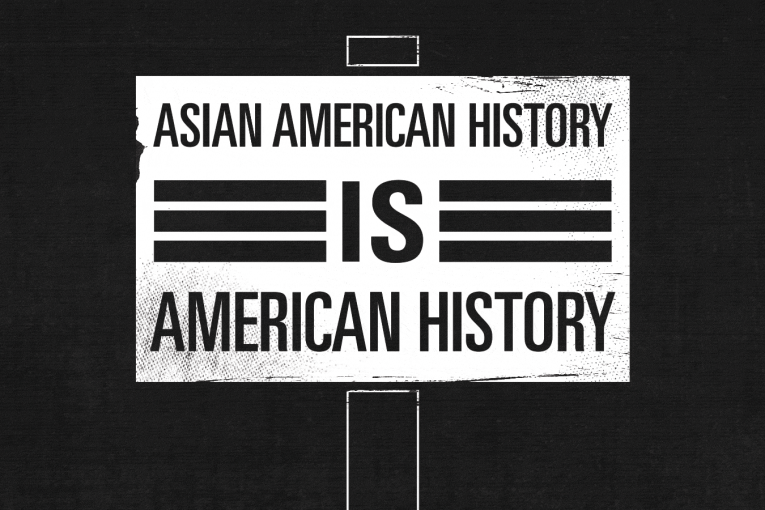

By Lauren Smith
DAVIS – During Thursday evening’s Human Relations Commission meeting, members were asked to review a “Proposed Resolution Condemning Racism of and Standing in Support of Asian American and Pacific Islanders” before it goes to the council on March 16, their next meeting.
Commission Chair Sheila Allen recalled the City of Davis’ dark history in participating in the internment of “families right here in Davis” during World War II as a direct result of Executive Order 9066 signed by former president Franklin Roosevelt. Allen suggested adding a sentence into the resolution “recognizing and remembering” the city’s complicit actions during this period of time.
Commission Member Kate Snow agreed with Allen and also added that former Davis Mayor Covell proposed “that Japanese Americans [should not be] let back into the city after the war…something fairly heinous…it is worth beginning to acknowledge formally that this still describes our experiences, we are still not where we want to be. We are also a community reckoning with our past and the harms that have come from this community whether it is omission or commission.”
Snow also suggested that the council and commission should acknowledge the “diversity of our Asian American community members. I think so often we talk about Asian Americans, but we don’t differentiate between the different experiences of being a Chinese American or Japanese American or South East Asians or coming from different parts of Asia.”
Commission alternate Edgar Wong-Chen asked, “Is it common to use ‘AAPI’? Coming from Asian American studies, there’s always been a challenge of recognizing all the different groups and there’s been so many labels that have been thrown out there and I fear that us choosing a label is narrowing the selection of people because some people don’t identify with particular parts of the Asian American or Pacific Islander diaspora.”
This plunged the commission into a deep discussion of how to better include all members of Asians, Asian Americans, and Pacific Islanders in the community.
Allen stated that there are “many people who live in Davis [who] would not necessarily [identify as] Asian American. They live here, but there are people who are not ‘Asian American.’”
Commission member NJ Mvondo made an analogy to the black community stating that the term “Asian American can be very specific and can make maybe some people feel excluded, the same as a black person living in the US when using African American may not identify as that.”
“I know a lot of people in the Davis community who are visiting from Asia who are from those regions, who are not part of this, these also are the people being targeted” Edgar added.
While the term AAPI is outdated, there is not a newer, more inclusive term to replace it at this time.
Wong-Chen acknowledged that one caveat to this “rabbit hole” discussion that many ethnic studies circles have debated at length, is that “now you have to include every single little thing that you think of and then you have this very, very, very, very long address of titles so you don’t ignore any particular group.”
He joked that “maybe one day we will be called Asianx.”
The commission eventually agreed on “Asian heritage and Pacific Islanders” as the most inclusive term to refer to all possible Asian and Pacific Islander identities and ethnicities.

Lauren Smith is a recent graduate from UC Davis who double majored in Political Science and Psychology. She is from San Diego, California.
I appreciate that, in addition to recognizing the various subgroups and wishes of various individuals, that it was recognized what rabbit hole this can get to be. That this was discussed openly is the best route to striking a balance.
Good thing a person a color made that joke. Would have gone over like a lead balloon otherwise.
By the way, maybe someday my people will be known as Jewix, I joked.
I’m struck by the fact that the HRC got bogged down in a discussion of nomenclature rather than focusing on the fact that the resolution does nothing to identify steps the City will take to address the underlying issue.
The resolution itself merely endorses the general conclusion of a federal memorandum on the subject issued by the president. That federal memorandum, however, includes a number of steps the federal government will take to combat racism, xenophobia, and intolerance directed at the AAPI community. The City Council resolution, on the other hand, does not identify any steps the City will take locally to address the issue. Perhaps the assumption is that, despite Davis’ history of racial intolerance, the problem no longer exists here.
I’m not sure what the point of the resolution is other than to state that the City Council believes intolerance and xenophobia are bad. O.K. Not exactly a bold statement. But now what?
Re: The City taking specific steps to show support.
That’s a great point, Eric. This was briefly brought up during the meeting, and I hope that there will be a quick follow-up.
What specific steps do you and Eric have in mind?
Fair question, given your posts…
Bill: First, let me say I disagree with the contention that, because I’ve identified what I believe to be a shortcoming of the resolution, I’m somehow obligated to provide specifics to address the problem.
That said, however, the federal memorandum suggests some starting points. Based in part on that, I’d suggest:
Minimally, that Council and staff consult with AAPI community members and organizations to understand the needs of and challenges faced by AAPI individuals, particularly including issues related to the COVID-19 pandemic, which is associated with the dramatic upswing in racist incidents involving AAPI individuals.
The Council should also explore opportunities to prevent discrimination, bullying, harassment, and hate crimes against AAPI individuals, and consider expanding collection of data and public reporting regarding hate incidents against such individuals.
The Council could initiate or support events and training opportunities to increase awareness and cultural competencies related to discrimination confronted by AAPI community members.
Anyway, those are some initial suggestions in response to your question.
*Disclaimer: Though I’m a HRC commissioner, I am obviously not speaking on behalf of the commission in my responses.*
Hi Eric, I appreciate you taking the time to share the above suggestions. I have taken notes and they will be relayed via the appropriate channel. My understanding from last month’s meeting was that this was not the end of our work on the issue, but quite the opposite.
I thank you all for your interest and the constructive criticism. I hope that you will consider leaving public comments during this month’s meeting.